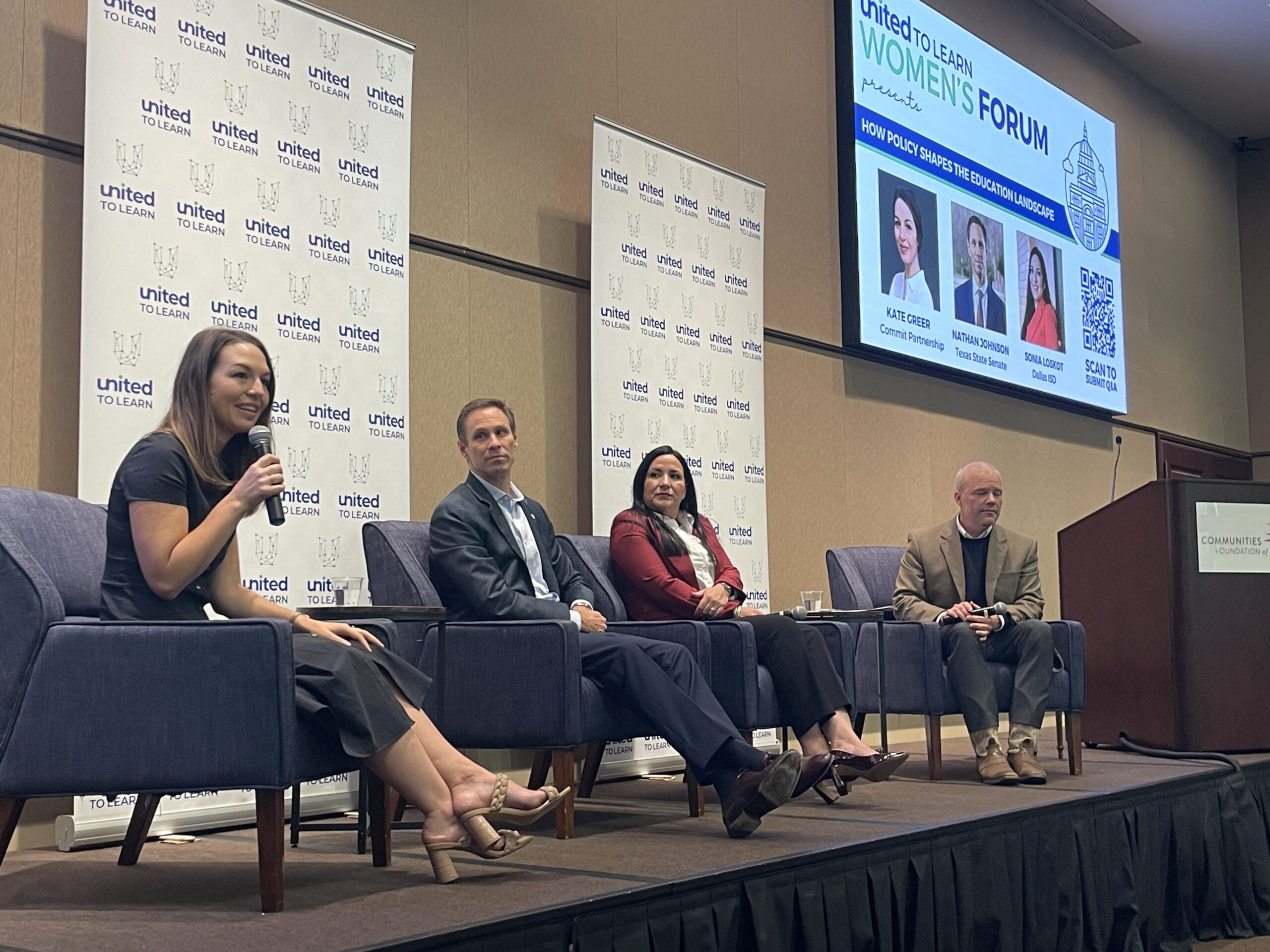
Dallas ISD holds panel to discuss inflation’s impact on public schools
Last Friday, executive director at Dallas ISD, Sonia Loskot held a United to Learn panel with Texas and educational leaders to discuss the direct cause of inflation in the public schools and how new policies can change the educational landscape.
Loskot was joined by Texas state senator and District 16 council member Nathan Johnson and Kate Greer, the managing director of policy and state coalitions for The Commit Partnership. Together they discussed the cost of inflation on public schools, how to make preschool accessible for teachers, paid parental leave for educators and enrollment versus attendance.
In response to inflation, the DISD has already dipped into its emergency relief funds to address the increased costs. Transitioning from attendance-based funding to enrollment-based funding is expected to help maintain reasonable class sizes and support various educational programs. Texas Legislature 88 for HB 263, which passed earlier this year, mandates funding public schools based on enrollment rather than attendance. This change aims to provide a more accurate representation of the number of students enrolled.
One of the key issues discussed was the rising cost of inflation, which has increased from 14% to 19%. It has posed challenges for retaining and attracting teachers to the DISD. The recently passed legislation is expected to assist by providing a basic allotment of funds.
“The funding from the state is not enough,” Loskot said. “Raising the basic allotment will help us ensure to give teachers salaries they deserve, as well as to help us retain and attract more qualified teachers to our classrooms.”
According to Texas Legislature 88 for HB 263 which passed earlier this year, has required public schools to be funded based on enrollment instead of attendance. This change was made because 300,000 students in Texas schools were undercounted when attendance-based funding was used.
Enrollment-based funding was found to be more accurate and would have a better representation of the number of students actually enrolled.
The panel also touched on how the already high-quality instruction materials for all teachers will help with the retention of teachers.
“No matter where they go in Dallas ISD, the students are getting the same rich curriculum,” Loskot said, which also helps teacher retention. “We’re building their capacity and we’re focused on that.”
State Sen. Nathan Johnson discussed proposed laws to help educators achieve a better work-life balance. For example, allowing teachers with preschool children to bring them to school would benefit both the teachers and their children, ensuring a high-quality education. Another proposal is paid family leave, which would provide group family leave insurance through employers to cover any income loss.
“If we have the school enrollment funding and the basic allotment, we can provide necessary resources for a quality education despite economic challenges that students bring to the classroom,” Loskot said.
This panel was part of United to Learn’s Women Forum and the next discussion will be on Friday, Jan. 19, 2024.